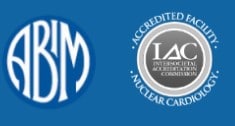What Is Atrial Fibrillation?
Atrial fibrillation or AFib is an irregular heart beat, also known as an arrhythmia. This can lead to blood clots, stroke, heart failure or other complications. There are over 2.7 million Americans living with Atrial Fibrillation. Many people describe their heartbeat as flipping, skipping beats, or banging in their chest. While AFib does not always present symptoms some may include shortness of breath, chest pain during exertion, and light-headed or dizziness.
Atrial fibrillation happens when the upper chamber of the heart quivers or move incorrectly when opening or closing. The American Heart Association says, “Even though untreated atrial fibrillation doubles the risk of heart-related deaths and is associated with a 5-fold increased risk for stroke, many patients are unaware that AFib is a serious condition.”
How Can I Be Screened For AFib?
AFib is diagnosed usually with a physical exam but sometimes is specifically screened for based on family history. Sometimes there are no symptoms so a diagnosis may be discovered during an EKG or from a routine physical exam which may have been done initially for another purpose.
Annual physicals can help catch an Atrial Fibrillation or other heartbeat irregularities. If you are concerned that you may be presenting symptoms, visit your primary care physician for a referral to a cardiologist.






